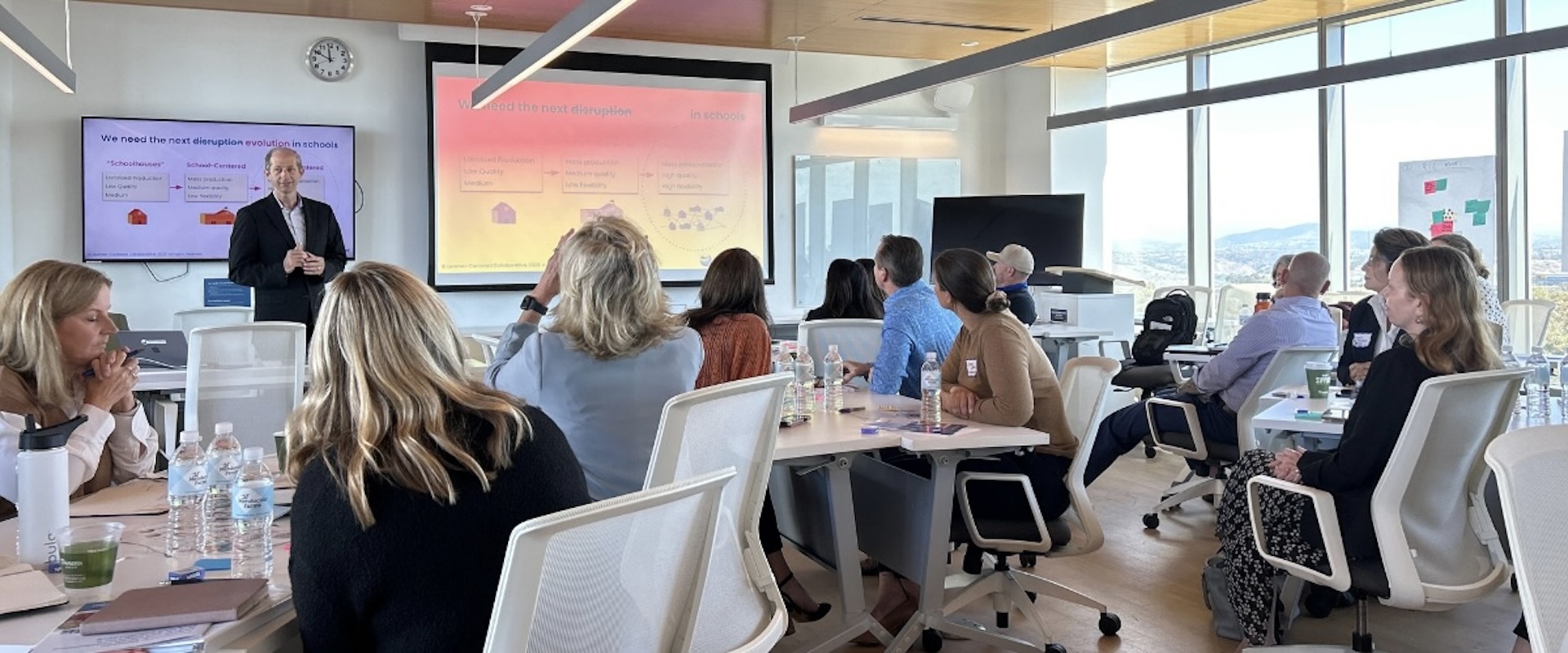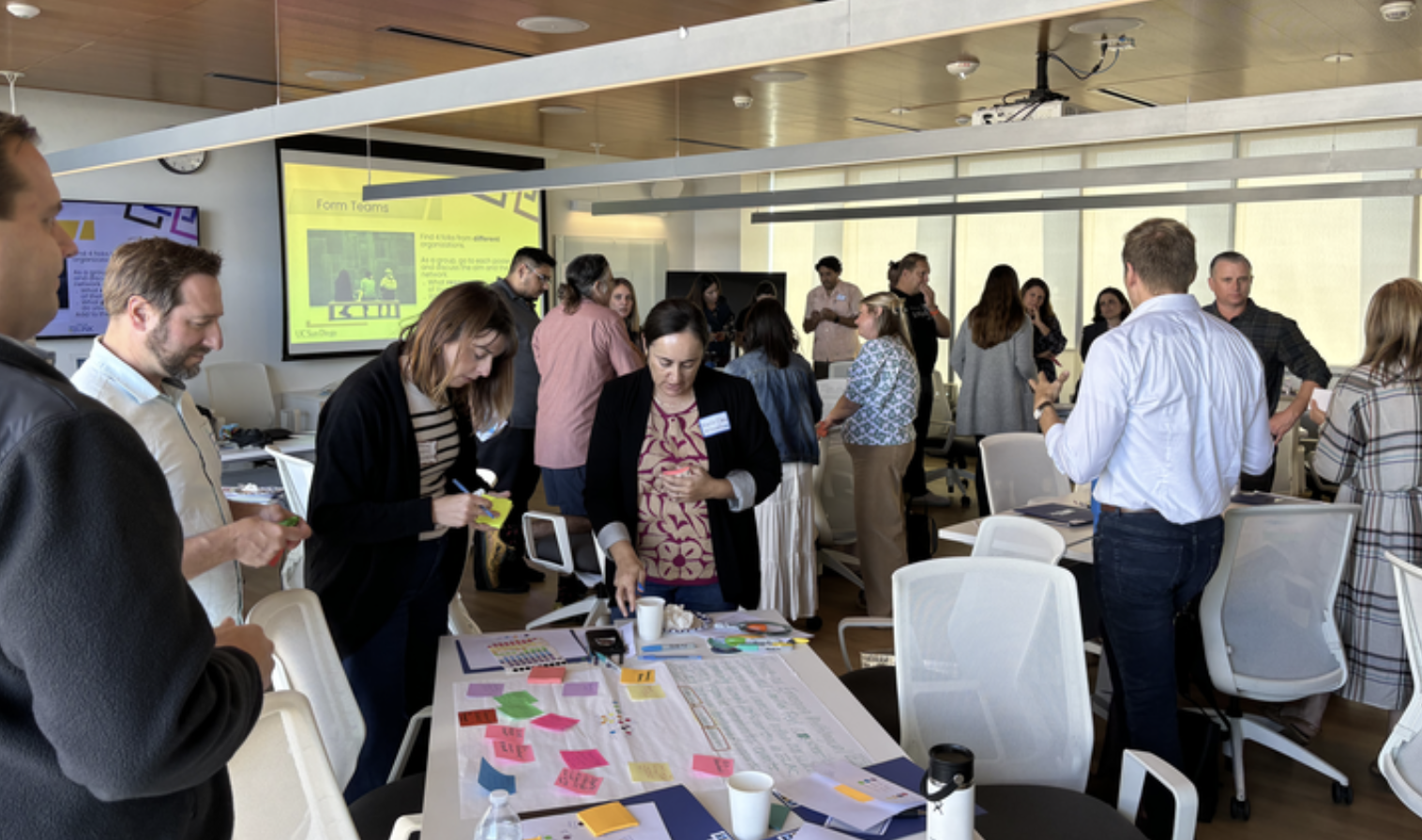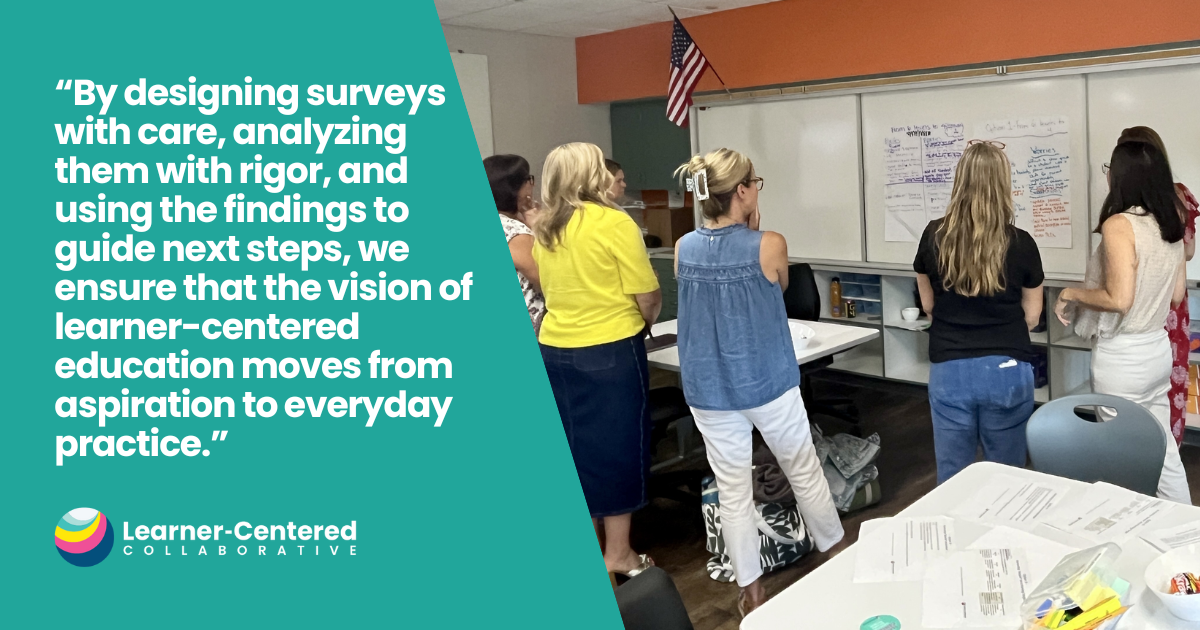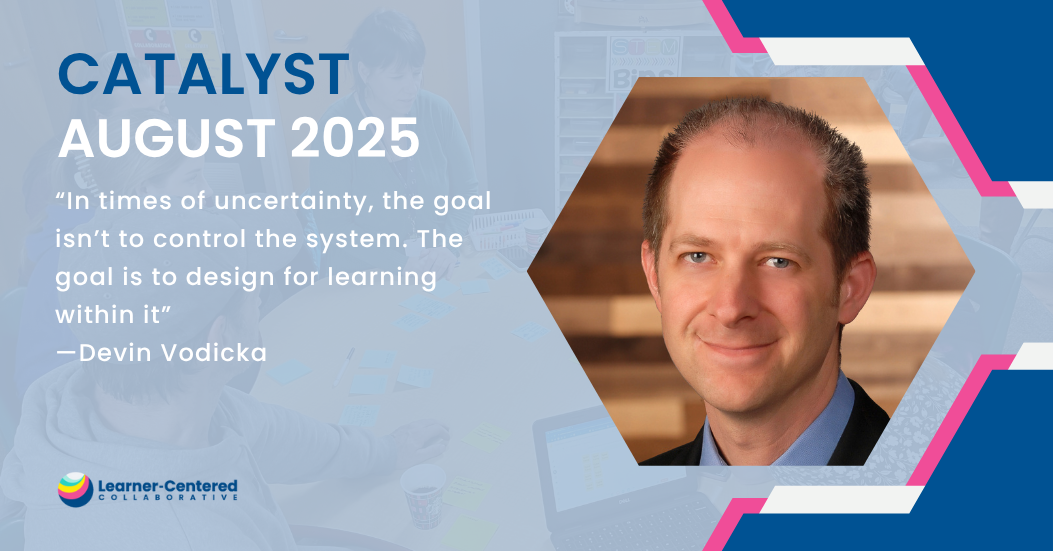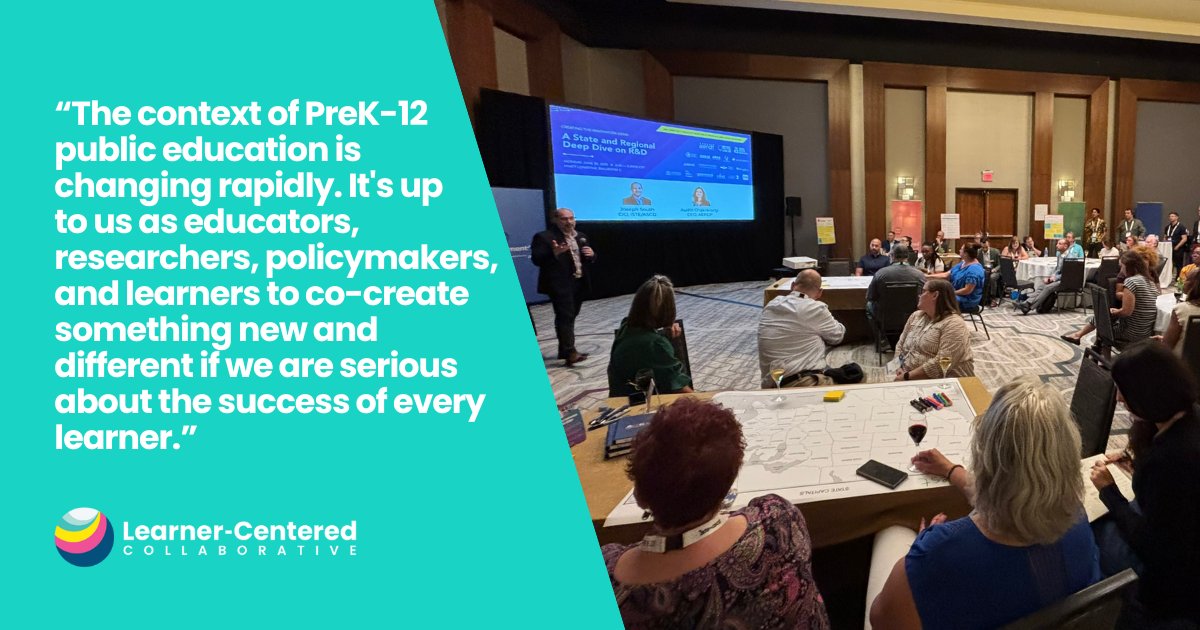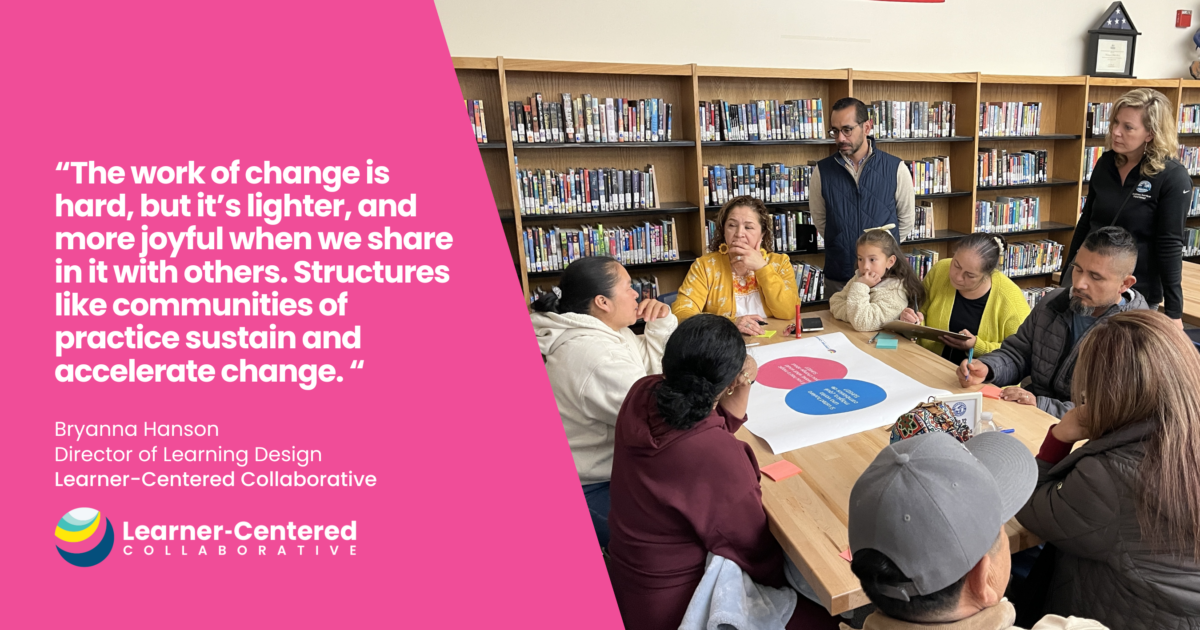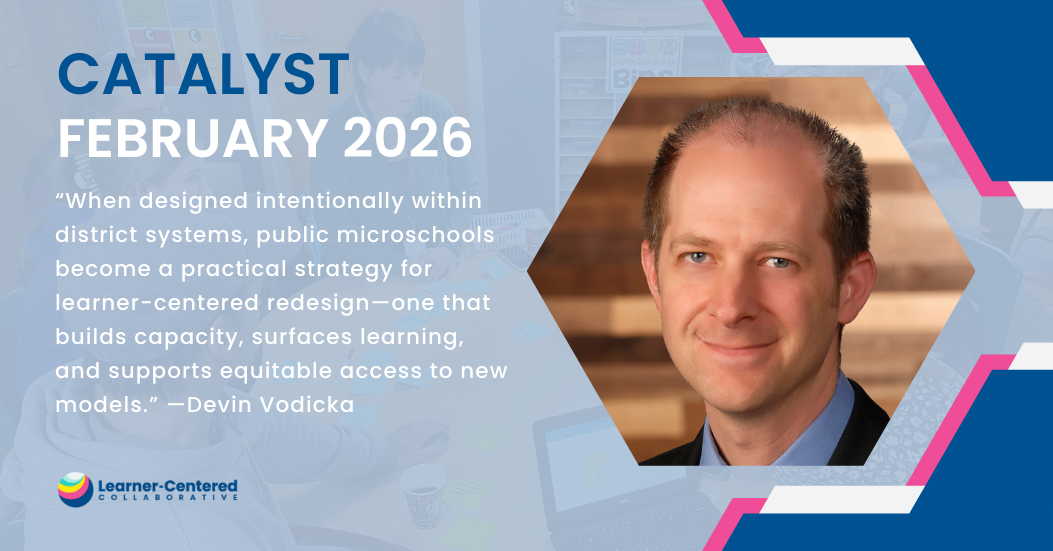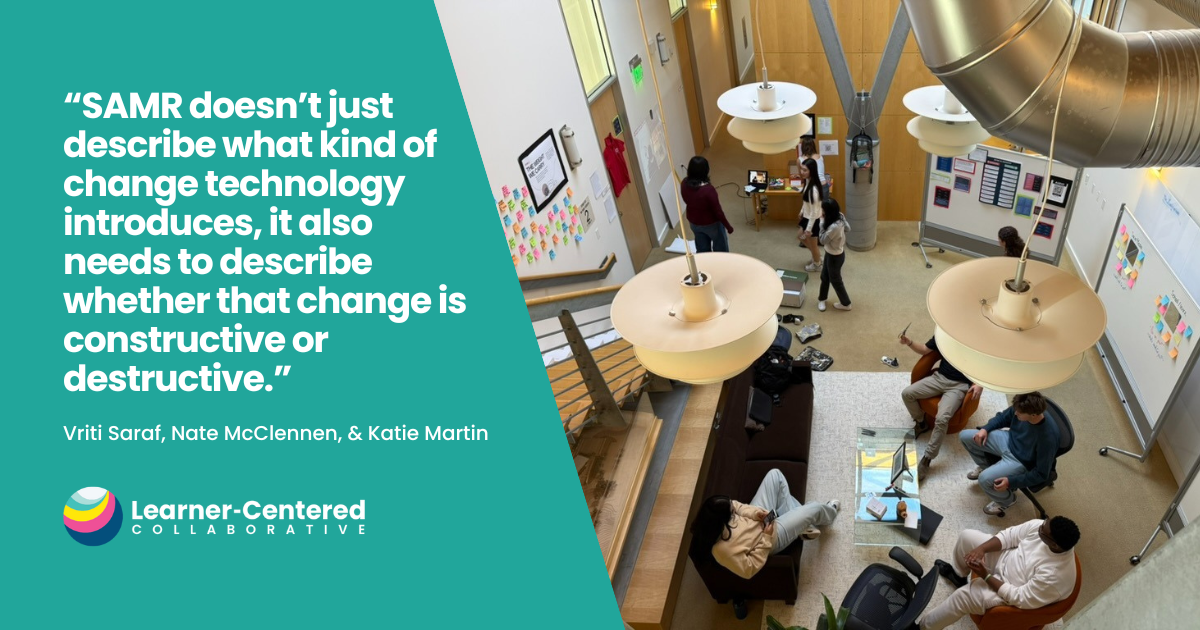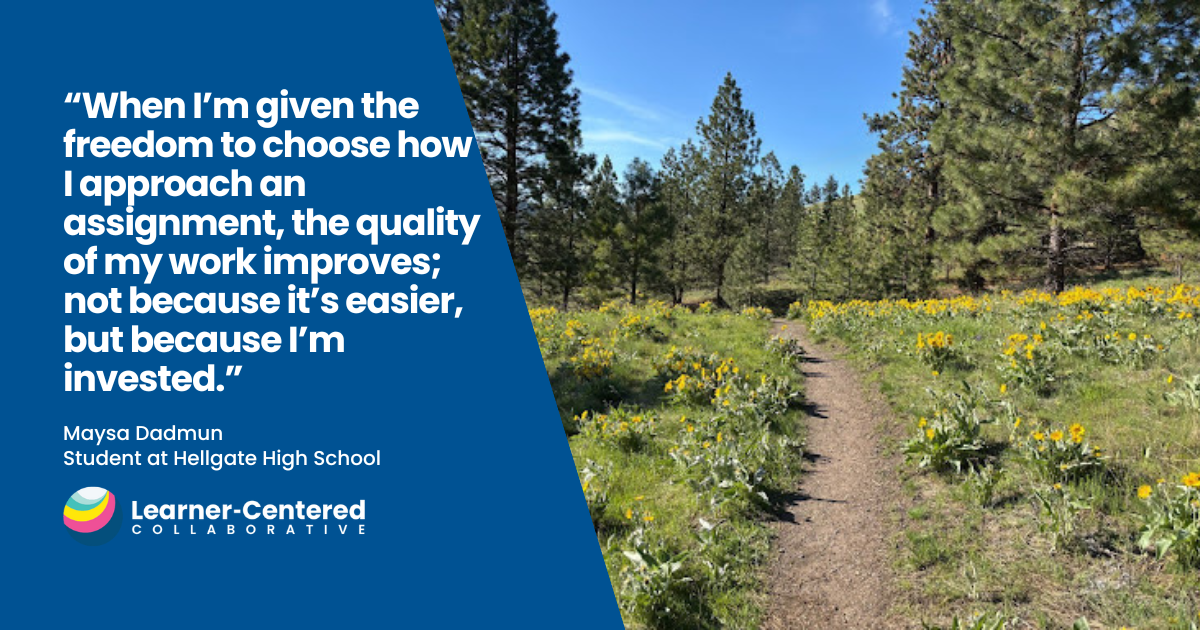Building Brighter Futures Together: Insights from the SoCal LiNK Regional Partnership
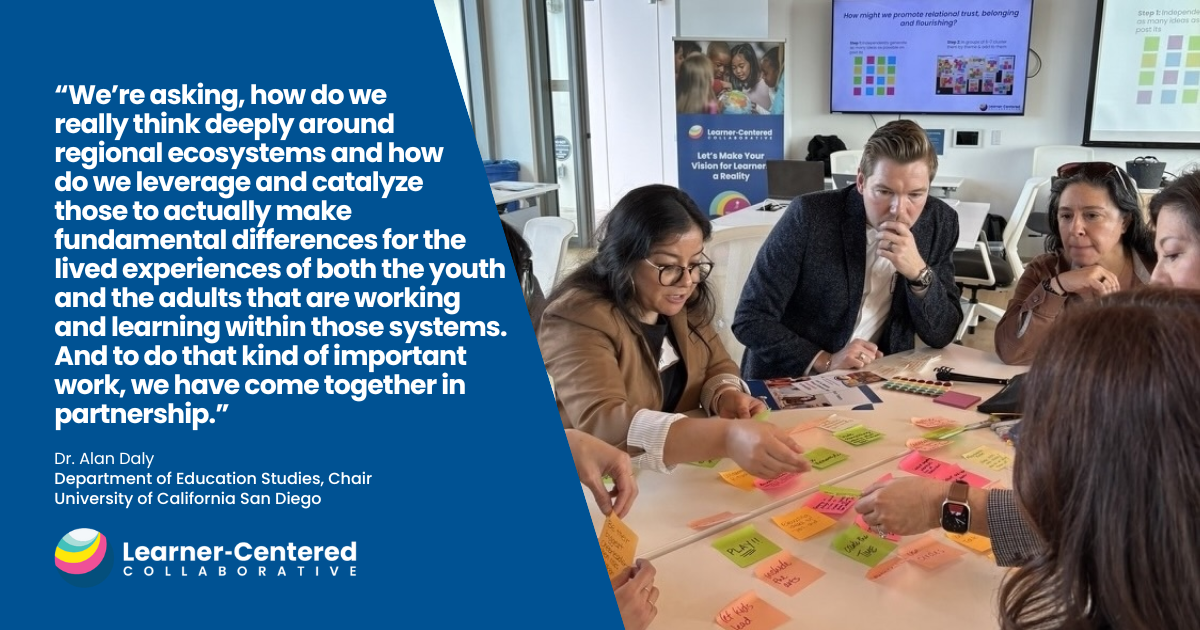
A fresh model of collaboration is emerging in Southern California; one that unites K–12 education, higher education institutions, and local communities with a shared focus on supporting the whole learner.
SoCal LiNK, Southern California Learning in Networked Knowledge, is a research-practice partnership between the Department of Education Studies at UC San Diego, Learner-Centered Collaborative (LCC), and Southern California school districts. The partnership creates a space for educators, researchers, and community leaders to exchange knowledge and co-develop evidence-based practices.
As a multi-pronged partnership network, SoCal LiNK consists of of organizations ranging from schools, universities, foundations, and education offices all committed to advancing learner-centered education in their communities.
SoCAL LiNK convened via webinar on May 28, 2025, with representatives from Del Mar Union School District, High Tech High, UC San Diego, and Learner-Centered Collaborative to celebrate successes, navigate challenges, and explore the transformative possibilities from the last year. Check it out!
The Collaborative Process
In addition to nonprofits and higher education, SoCal LiNK brought together teams from ten local, Southern California school systems who engaged in a collaborative process throughout the year.
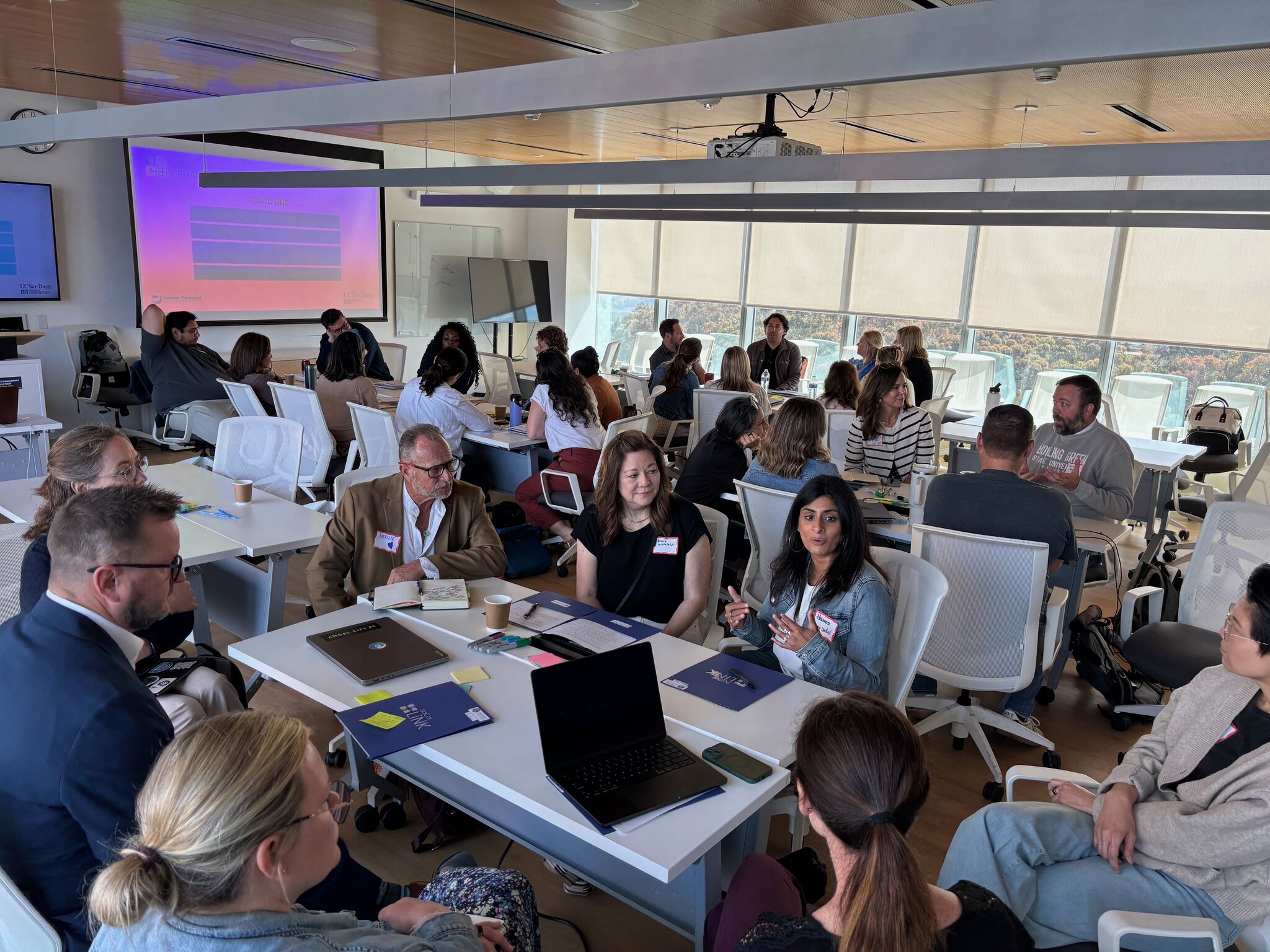
Each team identified a meaningful goal grounded in a local problem of practice. Through a series of quarterly convenings and individual empathy check-ins with researchers, teams shared progress and refined their efforts based on themes of connectedness, narrative, and evidence. The final convening of the year offered space for teams to reflect on their journeys, share learning, and engage in a peer consultancy process to lay the groundwork for next steps.
The individual and collective journeys of the school teams are helping to illuminate the deeper dynamics of educational change—and will serve as a powerful foundation for future research on how meaningful shifts take root and grow.
In the words of Devin Vodicka, co-CEO of Learner-Centered Collaborative, “We’re co-designing and co-creating new and different ways of being with one another so that we can bring this vision to life for more and more of our learners.”
Partners in Learning
SoCal LiNK emphasizes how learning is done best in community. Dr. Alan Daly of UCSD highlighted how SoCal LiNK prioritizes connection:
“We’re asking, how do we really think deeply around regional ecosystems and how do we leverage and catalyze those to actually make fundamental differences for the lived experiences of both the youth and the adults that are working and learning within those systems. And to do that kind of important work, we have come together in partnership.”
Missed the SoCal LiNK webinar? Don’t worry! LCC hosts frequent webinars featuring experts on learner-centered practices! Take a look at our upcoming webinars here.
The universities play a critical role in blending research and innovation. David Trautman, a PhD candidate in UCSD’s Education Studies program, shared how his team blends their research with on-the-ground action change work with the help of SoCal LiNK:
“The team blends rigorous inquiry with hands-on engagement in school systems to curate research, elevate effective local practices, and generate new knowledge. Their work centers on supporting transformational change from within—deeply listening to the needs of educators and communities and designing evidence-based responses.” This process, Trautman emphasized, “is about aligning values with practices.”
Convenings That Build Community
A hallmark of SoCal LiNK’s first and second years have been a series of convenings that brought together teams from ten school systems, each including representatives from the classroom, site leadership, and central offices. These gatherings became vibrant spaces for collaboration across silos.
Through a mix of storytelling, shared resources, and intentional matchmaking based on common challenges, participants formed authentic connections and explored new pathways for learner-centered transformation. As Trautman noted, the convenings made space for a truly interdependent ecosystem to take shape.
Krista Berntsen, Principal of Ocean Air School in Del Mar, shared how her District’s participation was driven by a desire to reconcile their commitment to learner-centered education with traditional structures, like standards-based report cards.
“It was really important for us to draw upon a larger network to learn from what have others been thinking about, including barriers and challenges. We were asking what we need to consider to take on this new sort of possibility for assessment and reporting,” she said.
Del Mar found inspiration in the work of peer districts and began collecting “street data” through student focus groups and parent interviews to better understand how their systems supported student learning.
Dr. Diana Cornejo-Sanchez, CEO of High Tech High echoed this sentiment from her perspective at High Tech High. For her, SoCal LiNK aligned naturally with High Tech High’s core design principles of equity, personalization, authentic work, and collaborative design. The network allowed her team to build bridges across systems and elevate the voices of students and families, especially those navigating immigration-related challenges.
Lessons in Leadership and Collaboration
A consistent thread throughout the conversation was the importance of relational trust. Dr. Daly emphasized that successful networks are built on vulnerability and authenticity. When people feel psychologically safe, collaboration becomes a space for growth and innovation.
Other partners agreed that the school-centered model of teaching and learning often isolates professionals, leaving little time for true collaboration. SoCal LiNK disrupts that pattern by creating a community of practice grounded in trust, joy, and shared purpose.
For systems that are often seen as already successful, the panelists acknowledged that embracing change can be challenging. Yet, as Krista and Diana both shared, even high-performing systems must pause to ask: Are we truly centering the learner experience?
Beyond Southern California
SoCal LiNK is an inspirational model of regional innovation hubs, city-wide, statewide or multi-state collaborations that bring together a variety of people across sectors which could include educators, researchers, technologists and community leaders. These regional hubs open more doors for local organizations to collaborate, learn, and grow. This means breaking down silos, inviting diverse voices into the process, and bravely aligning systems with shared values.
“Regional ecosystems offer the ideal scale for experimentation and evolution. They’re big enough to impact systems, small enough to build trust, and flexible enough to adapt to context. In short, regional hubs are where vision meets action,” says Devin Vodicka, Co-CEO of LCC.
We’re hard at work preparing for the 2025-2026 SoCal LiNK Cohort. If your district, school, organization, or foundation is based in Southern California, let’s chat. Reach out to Devin Vodicka to start the conversation.
A Call to Action
As we reflect on the first two years of SoCal LiNK, we’re filled with optimism and determination. This work is not easy—but it’s essential. It challenges us to rethink systems, value community wisdom, and build networks of support that reach every learner.
Our biggest takeaway from SoCal LiNK? Learning is best done in community. And as Learner-Centered Collaborative, we intend to maintain our collaborative mentality and hold partnership networks central to the work we do.
Whether you’re in Southern California or anywhere else in the world, LCC hosts a variety of opportunities for collaboration and relationship building beyond SoCal LiNK. We’d love to host you at our biannual Connections, school visits, webinars, and more. Let’s make it a reality!
